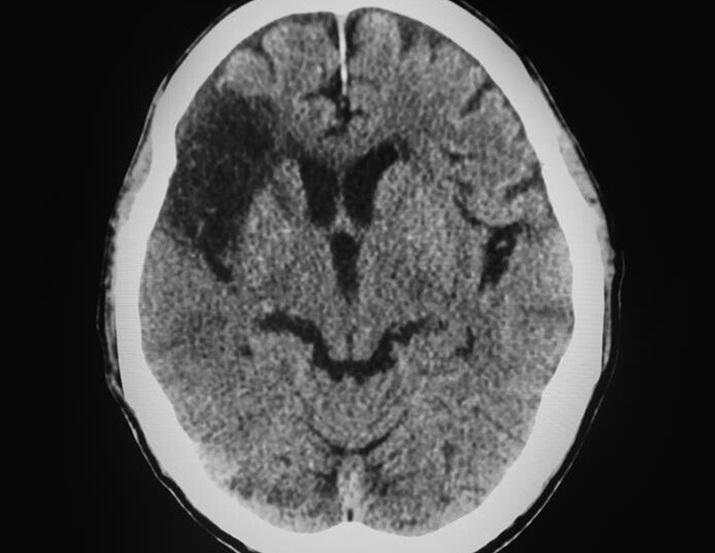AI Stroke Brain Scan Readings Twice as Accurate as Current Method
Posted on 11 Dec 2024
A stroke occurs when the blood flow to a part of the brain is interrupted or reduced, depriving brain tissue of oxygen and nutrients. This causes brain cells to die rapidly. As time passes, some treatments may become less effective or even worsen the situation. Knowing the exact time a stroke occurred is critical because standard treatments are most effective in the initial stages after a stroke and may cause further damage if applied later. However, determining the time of onset can be challenging. Some strokes may begin while a patient is asleep, and stroke symptoms can make communication difficult. When a patient arrives at the hospital with a suspected stroke, they typically undergo a CT scan, which doctors review to assess the extent of brain damage. Darker areas on the scan indicate that the stroke has progressed, helping doctors estimate the time of onset and whether treatment is still viable. However, predicting the stroke’s start time accurately is difficult because every brain is different. Even if an approximate onset time is known, factors like blood flow or vessel structure can cause the stroke to progress at different rates.
Researchers from Imperial College London (London, UK) have now developed artificial intelligence (AI) software that analyzes brain scans of stroke patients to more accurately determine when the stroke occurred and assist doctors in assessing its treatability. This technology aims to enhance the speed and precision of emergency treatments in hospitals. The AI software tackles two major challenges in stroke care: determining the stroke’s onset time and evaluating whether the damage can be reversed. The software has been shown to be twice as accurate as the current method, which relies on a medical professional’s visual assessment of CT scans by looking at the darkness of affected areas in the brain.

The AI algorithm was trained using a dataset of 800 brain scans where the stroke onset time was known. It not only extracts the relevant area from the scan but also analyzes the lesions to provide an estimated time of occurrence. When tested on nearly 2000 different patients, the software was found to be twice as accurate as the standard visual method. Researchers attribute this to the AI’s ability to consider additional features from the scans, such as texture, and to account for variations within the lesion and surrounding tissue. The study, published in NPJ Digital Medicine, found the AI system to be not only proficient at estimating the stroke’s onset but also at determining the biological age of the lesions, which indicates whether the damage may be reversible.
“Having this information at their fingertips will help doctors to make emergency decisions about what treatments should be undertaken in stroke patients,” said Dr. Paul Bentley at Imperial’s Department of Brain Sciences, who led the research study. “Not only is our software twice as accurate at time-reading as current best practice, but it can be fully automated once a stroke becomes visible on a scan.”














